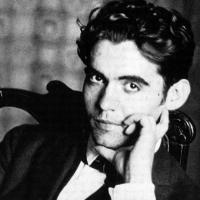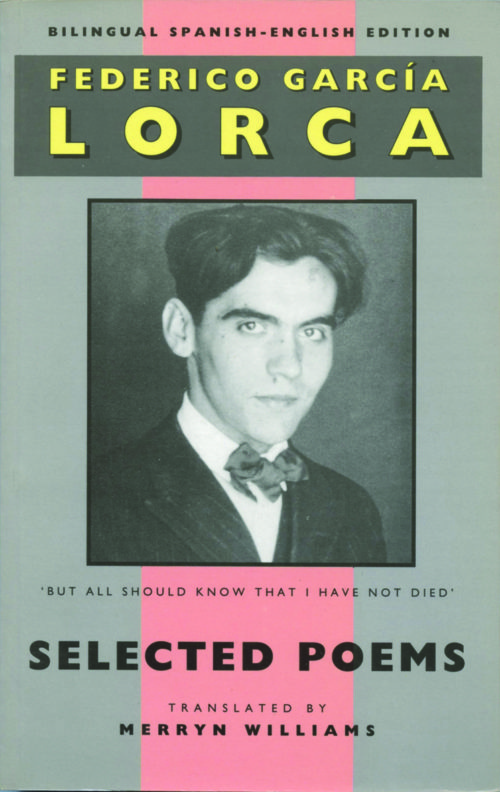I want to go down to the well, I wantto climb the walls of Granada,to see the heart that has been piercedby the dark needle of water.The wounded boy was groaninghis head crowned with white frost.Ponds, cisterns and fountainsraised to the air their swords.Ah, what fury of love, what a cutting edge,dark murmurs, a death so white!Sunk in the sands of daybreak,what deserts of light!The boy was alone, the cityin his throat, asleep.A spout of dreams protects him fromthe hunger of seaweed.The boy and his agony, face to face,were two green rains entwined.The boy stretched out upon the earth,his agony curved round.I want to go down to the well, I wantto die my death by mouthfuls,to fill my heart with moss, to seeone wounded by the water.
Casida del herido por el agua
Quiero bajar al pozo,quiero subir los muros de Granada,para mirar el corazón pasadopor el punzón oscuro de las aguas. El niño herido gemíacon una corona de escarcha.Estanques, aljibes y fuenteslevantaban al aire sus espadas.¡Ay qué furia de amor, qué hiriente filo,qué nocturno rumor, qué muerte blanca!¡Qué desiertos de luz iban hundiendolos arenales de la madrugada!El niño estaba solocon la ciudad dormida en la garganta.Un surtidor que viene de los sueñoslo defiende del hambre de las algas.El niño y su agonía frente a frente,eran dos verdes lluvias enlazadas.El niño se tendía por la tierray su agonía se curvaba. Quiero bajar al pozo,quiero morir mi muerte a bocanadas,quiero llenar mi corazón de musgo,para ver al herido por el agua.






